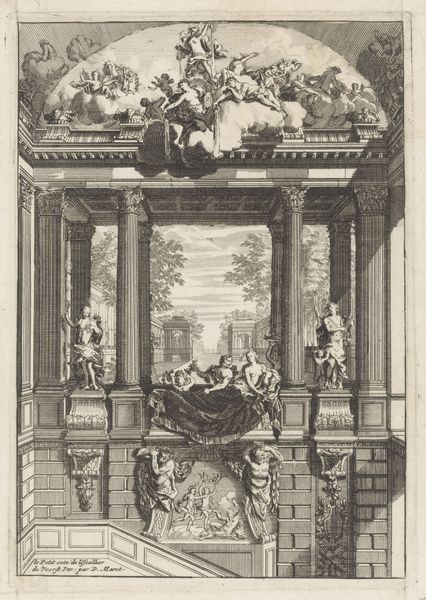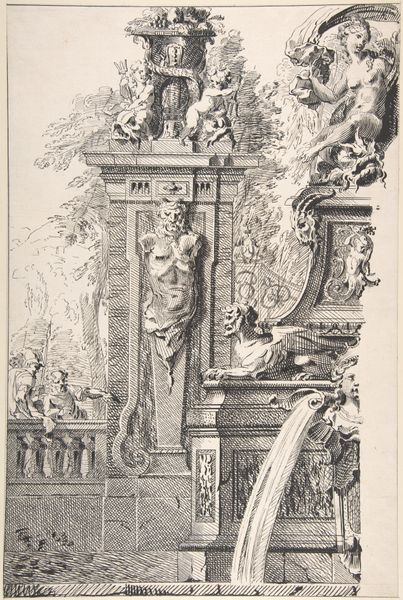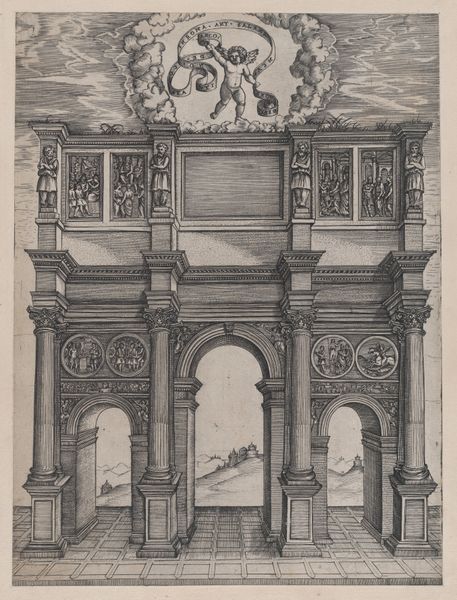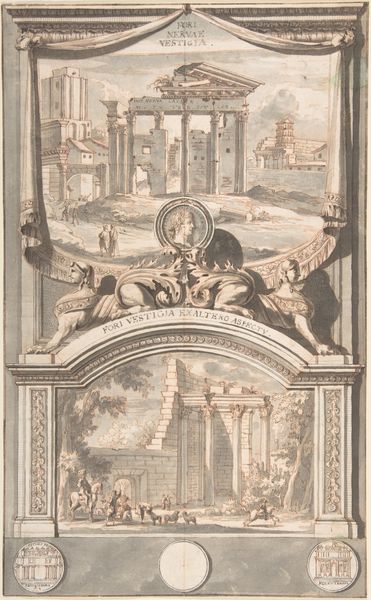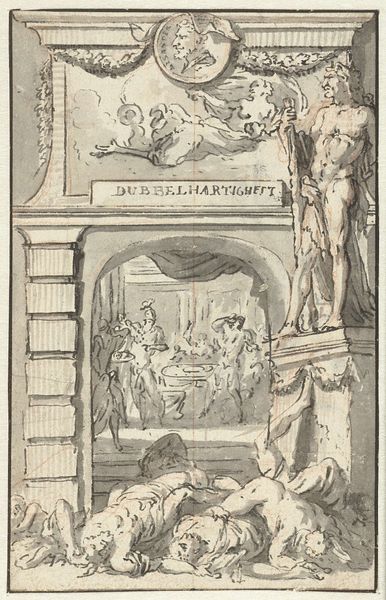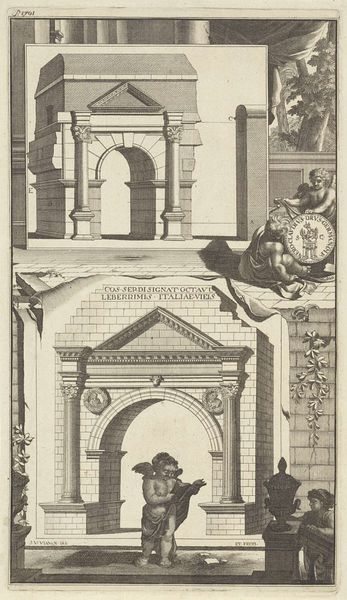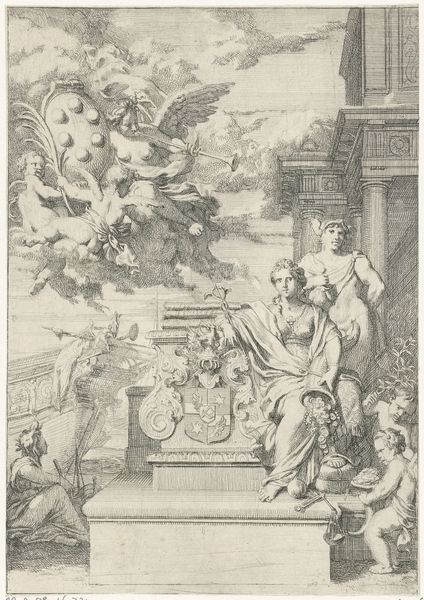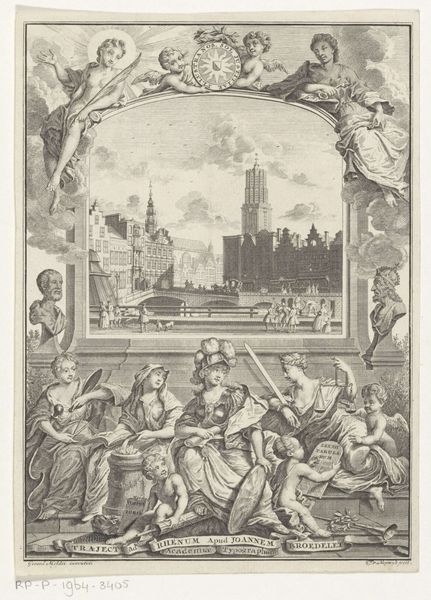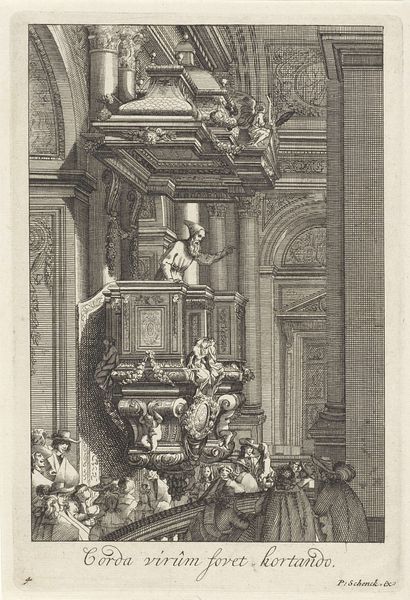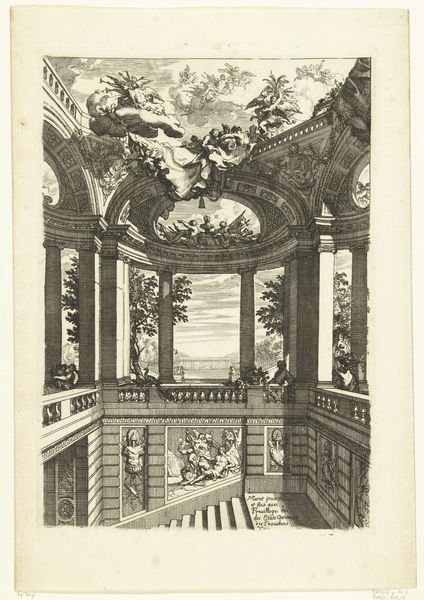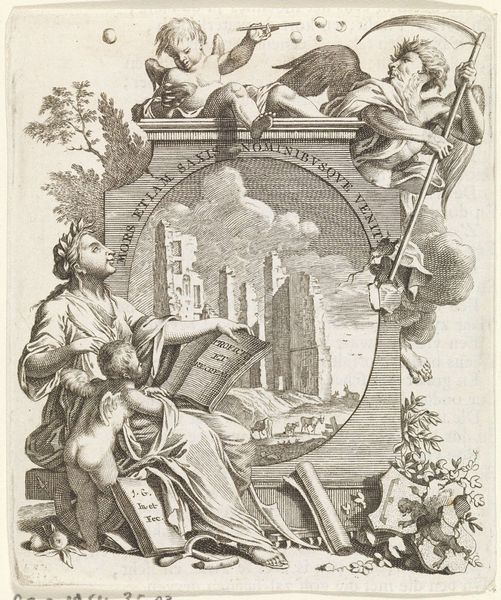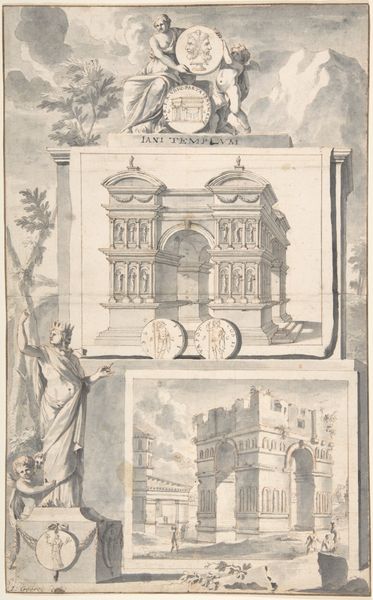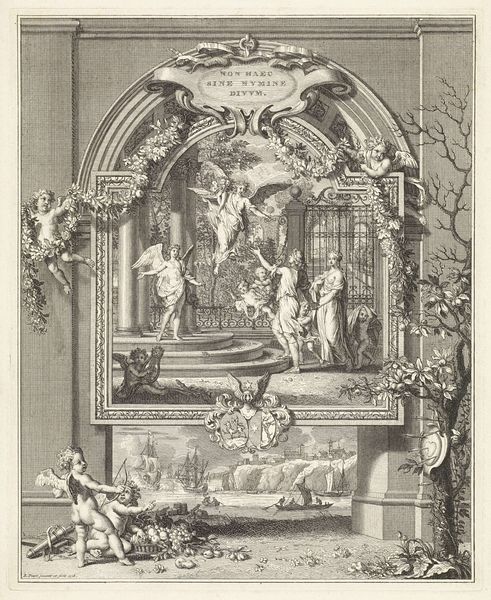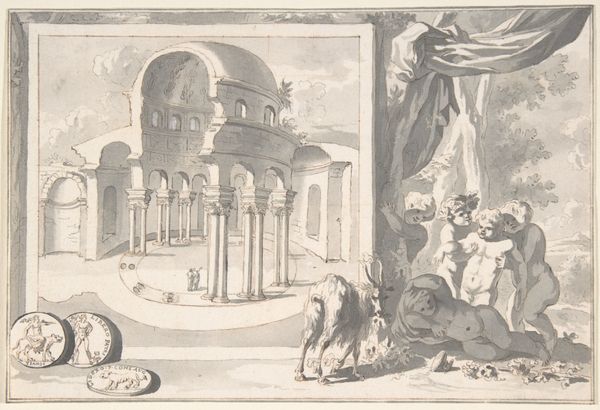
A Reconstruction of the Castellum Aquiae Martiae (above) and a View of the Ruins (below) 1690 - 1704
drawing, print, ink
drawing
ink drawing
landscape
perspective
figuration
romanesque
ink
cityscape
history-painting
italian-renaissance
italy
Dimensions: 12 3/4 x 8 1/16 in. (32.4 x 20.5 cm)
Copyright: Public Domain
Editor: So, this is Jan Goeree's "A Reconstruction of the Castellum Aquiae Martiae (above) and a View of the Ruins (below)," made between 1690 and 1704, using ink. What really strikes me is the contrast between the idealized structure at the top and the ruins shown beneath. How do you interpret this work? Curator: It’s crucial to consider the *means* by which this image was created. Ink, as a readily available and relatively inexpensive material, democratized the dissemination of architectural knowledge. These prints allowed for a wider consumption of Roman ideals. Look at the layering—what does it suggest to you? Editor: It feels like Goeree is commenting on the passage of time, maybe? The upper image showcases how labor shaped nature, constructing something monumental, whereas the lower one demonstrates its ultimate decline. Is there an intended message here about labor or craftsmanship? Curator: Exactly! Think about the social context, here, too. The depiction isn't simply about ruins. It subtly acknowledges the human element and societal implications inherent to creating and then neglecting such constructions. Does the perspective the artist provides offer any insights? Editor: Possibly. The vantage point elevates the ruins. Instead of merely documenting, it lends a picturesque, almost romantic, quality. Were viewers supposed to contemplate not just the *what* but the *why* and *how* of Roman construction and subsequent disintegration? Curator: Precisely! It’s not simply admiring antiquity, but asking questions about material resources, about societal organization necessary to create such works, and ultimately, the socioeconomic reasons for the inevitable fall into decay and ruin. These prints prompted a material reflection. Editor: It really makes me think differently about these seemingly simple historical landscapes! Thanks, this was helpful! Curator: The intersection of materiality and historical context definitely enriches our understanding of this artwork.
Comments
No comments
Be the first to comment and join the conversation on the ultimate creative platform.
